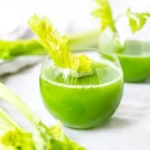 " title="Lemongrass Tea: Benefits, Uses, And Recipe
" decoding="async" srcset="https://www.medrot.com/wp-content/uploads/2021/11/maxresdefault-1.jpg 1280w, https://www.medrot.com/wp-content/uploads/2021/11/maxresdefault-1-300x169.jpg 300w, https://www.medrot.com/wp-content/uploads/2021/11/maxresdefault-1-1024x576.jpg 1024w, https://www.medrot.com/wp-content/uploads/2021/11/maxresdefault-1-768x432.jpg 768w" sizes="(max-width: 1280px) 100vw, 1280px" />
" title="Lemongrass Tea: Benefits, Uses, And Recipe
" decoding="async" srcset="https://www.medrot.com/wp-content/uploads/2021/11/maxresdefault-1.jpg 1280w, https://www.medrot.com/wp-content/uploads/2021/11/maxresdefault-1-300x169.jpg 300w, https://www.medrot.com/wp-content/uploads/2021/11/maxresdefault-1-1024x576.jpg 1024w, https://www.medrot.com/wp-content/uploads/2021/11/maxresdefault-1-768x432.jpg 768w" sizes="(max-width: 1280px) 100vw, 1280px" />Lemongrass is a plant belonging to Sri Lanka and South India but is now produced in many countries around the world. The stems of the plant are a common ingredient in Asian cuisine, but it is also possible to make lemongrass to make tea.
This plant has long leaves similar to those of sea grass. Although there are about 55 species of lemongrass, only East Indian and West Indian species are fit to use in cooking.
Several researchers are involved in the health and medical benefits of drinking lemongrass tea.
Table of Contents
Benefits of Lemongrass Tea
Lemongrass tea may have many benefits, including relief from anxiety and disease prevention.
Many people believe that lemongrass tea offers many health benefits, but researchers have not yet conducted large enough studies to prove these benefits.
Doctors know that tea can help fight free radicals, thus reducing inflammation in the body. Lemongrass contains anti-inflammatory compounds chlorogenic acid, isoorientin, and swertiajaponin.
Inflammation is a factor in many serious health conditions, including pain and heart disease. Thus, lemongrass tea can be a beneficial drink for people to include in their diet.
Below are seven other health benefits that may be the result of drinking lemongrass tea.
Reduce anxiety
Most people find drinking hot tea to relax, but lemongrass tea can provide additional features to reduce anxiety.
According to the Memorial Sloan Kettering Cancer Center, sniffing lemongrass may help people with anxiety. Although some people have inhaled essential oils of lemongrass to reduce stress and anxiety, researchers still need more evidence to confirm this benefit.
Lowering cholesterol
According to an article titled , dietary extracts of lemongrass appear to lower cholesterol in animals.
The study notes that the reaction depends on the dose. This means that large amounts of lemongrass can lower cholesterol.
Prevention of infection
According to the Memorial Sloan Kettering Cancer Center, research results suggest that lemongrass may have some potential to prevent infection.
For example, the plant appears to reduce the incidence of thrush, a fungal disease that commonly affects people with weakened immune systems, such as those with HIV.
Improve oral health
In many lands where the lemongrass plant is found locally, people will take lemongrass stems and chew them as a way to improve dental health and keep the mouth clean. The Food Chemistry Journal has published a study that confirms these findings. The authors looked at 12 herbs and found that lemongrass herbal extracts were one of the strongest barriers to bacterial growth in laboratory samples. Use germs that can cause cavities in the mouth, including Streptococcus sanguinis.
Eliminate pain
According to some studies, lemongrass may be able to prevent pain. This means that drinking lemongrass tea can help prevent a person from feeling pain.
Improve red blood levels
The results of a 2015 study suggest that daily infusion of Mongrass tea daily for 30 days can increase hemoglobin levels, the volume of full cells, and the number of red blood cells in the body.
The researchers performed blood tests at 105 human studies initially, and then within 10 to 30 days of taking part in the study. They concluded that drinking Mongrass tea improves red blood cell formation.
Although they did not accurately identify how lemongrass does this, they suggested that antioxidant tea properties may play a role.
Relieving constipation
Drinking lemongrass tea can have diuretic effects, which means it incites the kidneys to produce more urine than usual.
According to a small study in the Journal of Renal Nutrition, drinking lemongrass tea increases urine excretion than other beverages.
This diuretic effect on the body can be beneficial in situations where water retention leads to bloating. This is a common symptom of premenstrual syndrome (PMS).
It is also possible to make lemongrass tea at home. After buying ingredients from a grocery store or herbalist, people can take the following steps to make their tea:
Cut the stalks into 1- to 2-inch pieces.
Boil a cup of water.
Pour boiling water over the lemongrass stems to rise.
Leave the stems in water for at least 5 minutes.
Filter the liquid from the stalks and pour it into a cup of tea.
Adding ice cubes will create cold lemongrass tea.






